In the ever-evolving landscape of online content, the roles of digital creators and video creators often spark curiosity and debate. Both play pivotal roles in shaping the digital world, but their skill sets and objectives can differ significantly. Understanding these distinctions is crucial for anyone looking to navigate the content creation ecosystem effectively.
Digital creators encompass a broad spectrum of talents, from graphic design to social media strategy, while video creators specialize in the art of storytelling through moving images. Whether one’s goal is to build a brand or captivate an audience with compelling visuals, knowing the differences between these two roles can help in making informed career choices.
Digital Creator vs Video Creator
Definition And Scope
 Digital creators generate diversified content across multiple channels, including social media and websites. Their expertise spans graphic design, photography, writing, and more. Unlike niche content producers, digital creators balance various creative fields to reach broader audiences.
Digital creators generate diversified content across multiple channels, including social media and websites. Their expertise spans graphic design, photography, writing, and more. Unlike niche content producers, digital creators balance various creative fields to reach broader audiences.
Digital creators use a wide range of tools and platforms to execute their vision. They utilize Adobe Creative Suite for design, Canva for easy graphics, and writing tools like Grammarly. They disseminate content through platforms like Instagram, YouTube, and blogs to maximize reach and engagement.
Content Types And Formats
Digital creators produce various content types to maintain audience interest. They create blogs, eBooks, infographics, and multimedia presentations. This versatility enables them to appeal to different preferences and consumption habits, enhancing their overall impact.
Exploring The Video Creator
Definition And Scope
 Video creators specialize in producing video content, focusing on elements like scripting, shooting, and editing. They work on a variety of projects, including short films, YouTube channels, educational videos, and promotional content. The scope of a video creator extends from pre-production planning to post-production editing, ensuring quality in every frame.
Video creators specialize in producing video content, focusing on elements like scripting, shooting, and editing. They work on a variety of projects, including short films, YouTube channels, educational videos, and promotional content. The scope of a video creator extends from pre-production planning to post-production editing, ensuring quality in every frame.
Video creators rely on tools to enhance their work, such as Adobe Premiere Pro, Final Cut Pro, and DaVinci Resolve. These tools help in editing, color correction, and adding effects. Popular platforms where video creators publish their content include YouTube, Vimeo, and TikTok, reaching a broad audience and engaging viewers through visual storytelling.
Content Types And Formats
Content types vary widely for video creators, encompassing vlog series, tutorials, promotional videos, and short films. Formats include horizontal videos for platforms like YouTube and vertical videos for apps like TikTok and Instagram Reels. By diversifying content types and formats, video creators maintain viewer interest and adapt to platform-specific requirements.
Key Differences: Digital Creator Vs Video Creator
Skill Sets Required
 Digital creators need proficiency in graphic design and social media strategy. They use tools like Adobe Creative Suite to create diverse content types, including infographics and blogs. Video creators must excel in cinematography and editing, utilizing software such as Adobe Premiere Pro. Key skills involve scripting, shooting, and post-production techniques to create engaging visual content. This can help in figuring out “digital creator vs video creator”
Digital creators need proficiency in graphic design and social media strategy. They use tools like Adobe Creative Suite to create diverse content types, including infographics and blogs. Video creators must excel in cinematography and editing, utilizing software such as Adobe Premiere Pro. Key skills involve scripting, shooting, and post-production techniques to create engaging visual content. This can help in figuring out “digital creator vs video creator”
Digital creators engage audiences through various content types and platforms, utilizing social media interactions, comments, and shares to maintain interest. They often employ interactive features like polls and live Q&A sessions. Video creators focus on viewer retention through compelling storytelling and visual appeal. Engagement metrics include video likes, shares, and comments, primarily on platforms like YouTube and TikTok.
Monetization Strategies
Another difference between Digital creator vs Video creator is monetizing through multiple channels, including sponsored posts, affiliate marketing, and merchandise sales. Platforms like Instagram and personal websites facilitate these income streams. Video creators often rely on ad revenue from platforms like YouTube, along with sponsorships, Patreon support, and branded content deals. Both utilize their unique content to generate revenue but through different approaches.
Distinct Roles
Navigating the digital creator vs video creator landscape requires a clear understanding of the distinct roles of digital and video creators. Each path offers unique opportunities and challenges, making it essential for aspiring creators to align their career choices with their skills and interests. Digital creators thrive on versatility and a multi-channel approach, while video creators excel in storytelling and visual engagement. Both roles are integral to the evolving digital ecosystem, offering diverse ways to connect with audiences and generate revenue.

